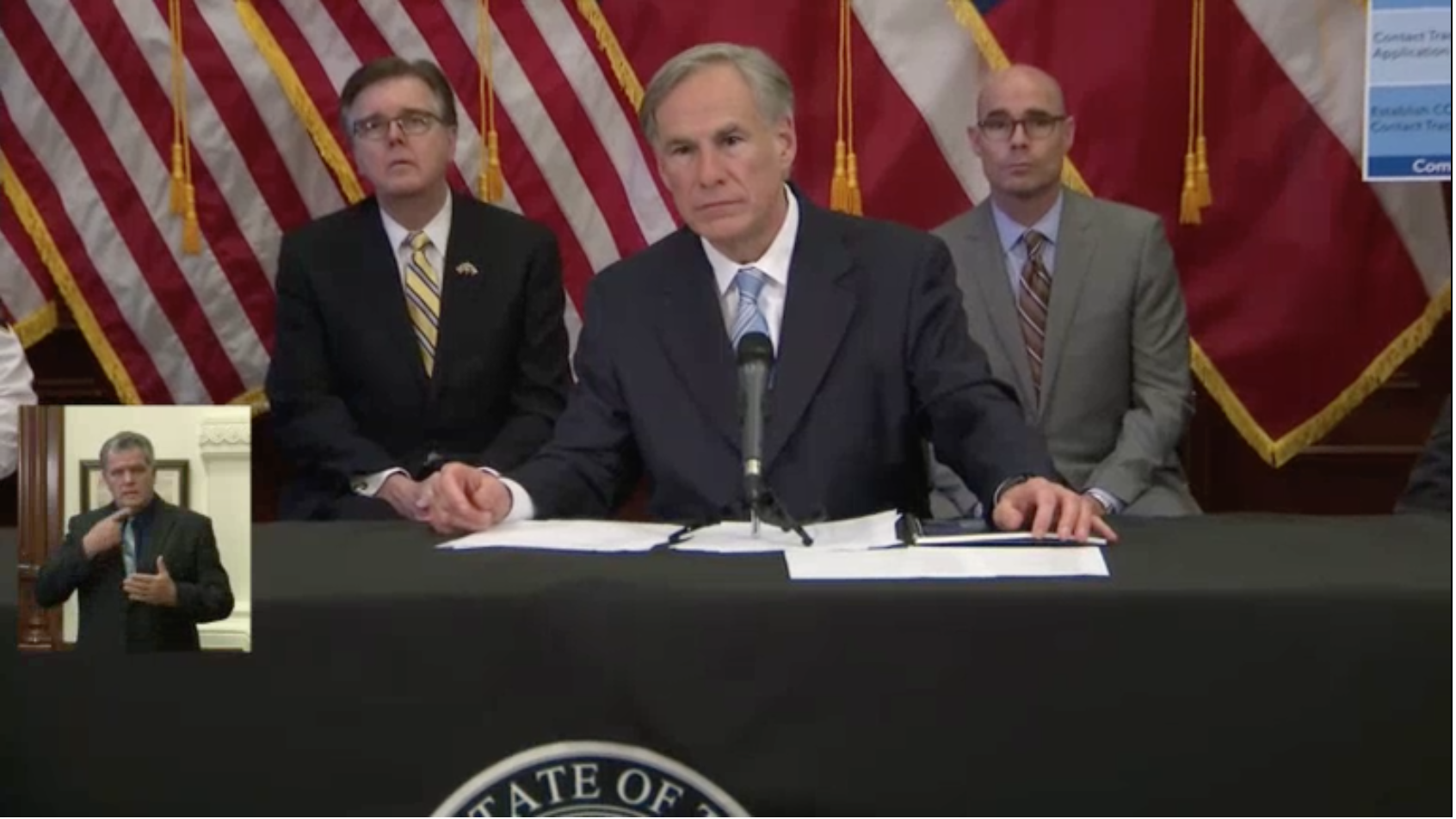Dallas County is experiencing record COVID-19 case numbers and hospitalizations over the last couple of weeks, and Gov. Greg Abbott is finally taking action. In a move to limit exposure to the disease and preserve hospital bed capacity, his executive order on Thursday morning suspends elective procedures in Dallas, Bexar, Harris, and Travis counties.
The counties “shall postpone all surgeries and procedures that are not medically necessary to diagnose or correct a serious medical condition of, or to preserve the life of, a patient who without timely performance of the surgery or procedure would be at risk for serious adverse medical consequences or death, as determined by the patient’s physician,” the order reads. Those that don’t obey are subject to a $1,000 fine.
He also announced pausing the reopening of the economy, but he is refusing to limit operations at businesses that are already open and operating at a certain level of occupancy. That means 75 percent capacity at restaurants and 50 percent capacity at bars. Restaurant patios will still not have any limitations. Museums, amusement parks, carnivals, skating rinks, bowling alleys and others are all fine to remain open. It is unclear whether pausing at this point is enough to curb the virus’ spread; many public health officials have said Abbott reopened the economy too soon, before a two week drop in new cases and hospitalizations.
Just last week, Abbott called hospital capacity “abundant” and that mandating masks was not the right approach to containing the disease. Later that week, judges in Bexar and Hidalgo counties ruled that the county could require business owners to enforce customers to wear masks, and the major cities in Texas quickly followed suit.
But a week later, Abbott changed his tune. Suddenly, the spread was “rampant” and he asked Texans to not venture out unless they absolutely had to. He urged personal responsibility without taking any statewide action to curb the spread of COVID-19. He said shutting down the economy would be a last resort, but did allow cities to limit the size of gatherings to 100 people.
Since June 1, COVID-19 hospitalizations are up 88 percent in Dallas County and 86 percent in a 19 county North Texas region, Dallas County Judge Clay Jenkins reported yesterday. Many of the new infections are those between the ages of 18 and 40. “For services where it’s not possible for people outside your family to be masked at all times, please find ways to obtain those services outside of a group setting. Please use good hand hygiene, carry hand sanitizer w/ you at all times & maintain 6ft+ distancing at all times,” Jenkins wrote via Twitter.
In a press conference this week, experts at UT Southwestern said their modeling expects a 20 percent spike in hospitalizations following the Fourth of July. The number of positive cases of COVID-19 has increased significantly since Memorial Day, and the same occurred after Easter and Mother’s Day, which is making infectious disease experts very nervous about a surge after the holiday.
“‘Are testing numbers stable? They have gone up, slightly, but they haven’t been reflective of the total number of positive test that have been coming out, which we calculate as the percent positivity,” Mujeeb Basit, M.D., UTSW Assistant Professor of Internal Medicine/Cardiology said at the press conference. “And, that number has increased significantly since the holiday weekend.”
The closing of elective procedures took its toll on the healthcare industry in North Texas earlier this spring, and while most clinics were able to transition to telehealth, revenue lagged as hospitals and clinics emptied out. Many clinics have been lobbying for a shift in the way some healthcare is paid for, so that they aren’t reliant upon procedures and fee-for-service payments, but can work toward a subscription model that can bridge the gap between busy periods and change incentives for physicians. For others who need surgery that isn’t technically life-threatening, it meant living with pain and discomfort, along with the mental strain of uncertainty about when their operation could occur.
But as cases rise in major urban areas across the state, other states are quarantining Texas travelers upon arrival, and experts are warning that cities in Texas are on the brink of disaster.
“As Texas faces a rise in COVID-19 cases, we are focused on both slowing the spread of this virus and maintaining sufficient hospital capacity for COVID-19 patients,” Abbott said in a release. “These four counties have experienced significant increases in people being hospitalized due to COVID-19 and today’s action is a precautionary step to help ensure that the hospitals in these counties continue to have ample supply of available beds to treat COVID-19 patients. As we work to contain this virus, I urge all Texans to do their part to help contain the spread by washing their hands regularly, wearing a mask, and practicing social distancing.”






